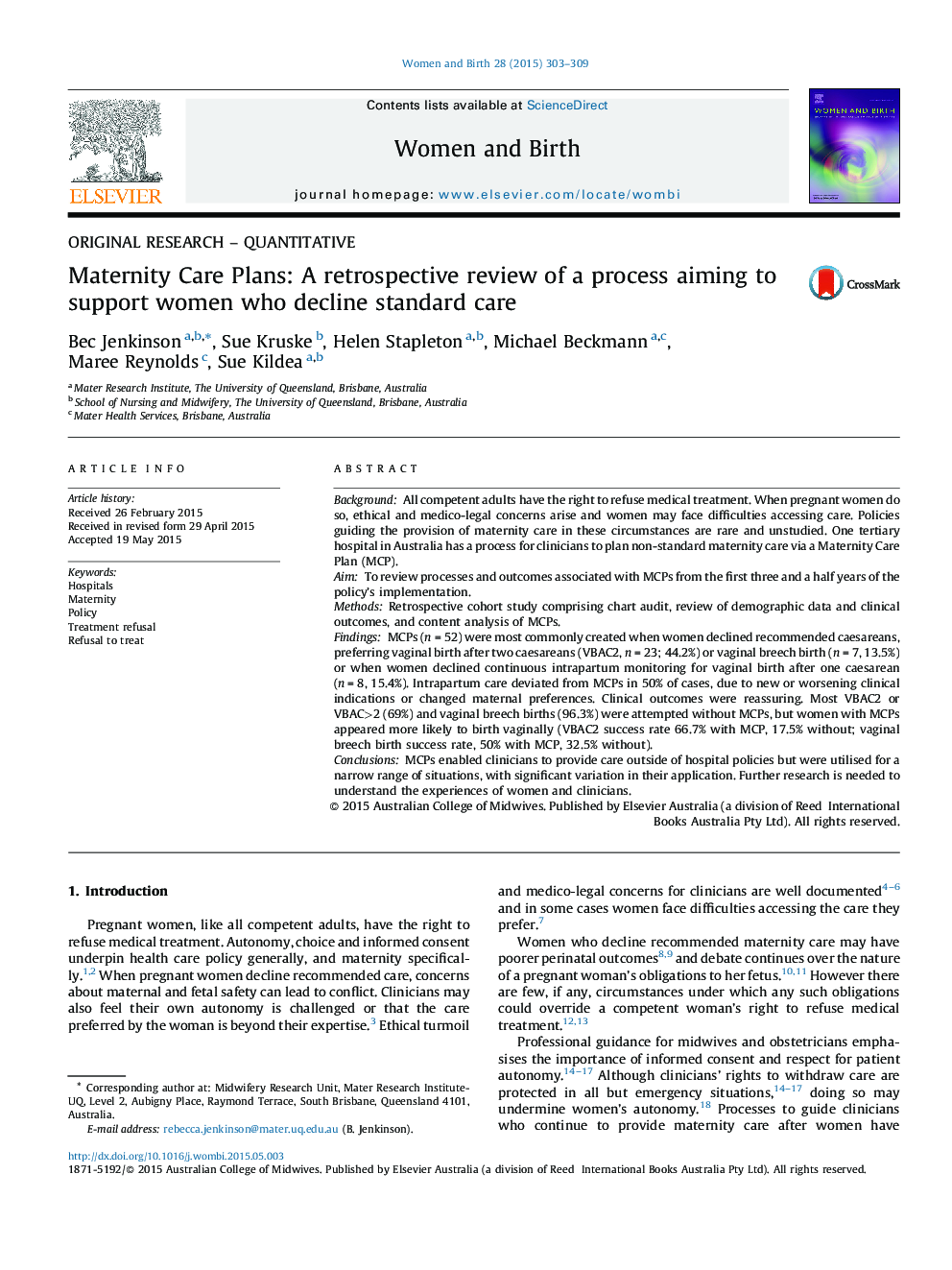| Article ID | Journal | Published Year | Pages | File Type |
|---|---|---|---|---|
| 2636492 | Women and Birth | 2015 | 7 Pages |
BackgroundAll competent adults have the right to refuse medical treatment. When pregnant women do so, ethical and medico-legal concerns arise and women may face difficulties accessing care. Policies guiding the provision of maternity care in these circumstances are rare and unstudied. One tertiary hospital in Australia has a process for clinicians to plan non-standard maternity care via a Maternity Care Plan (MCP).AimTo review processes and outcomes associated with MCPs from the first three and a half years of the policy's implementation.MethodsRetrospective cohort study comprising chart audit, review of demographic data and clinical outcomes, and content analysis of MCPs.FindingsMCPs (n = 52) were most commonly created when women declined recommended caesareans, preferring vaginal birth after two caesareans (VBAC2, n = 23; 44.2%) or vaginal breech birth (n = 7, 13.5%) or when women declined continuous intrapartum monitoring for vaginal birth after one caesarean (n = 8, 15.4%). Intrapartum care deviated from MCPs in 50% of cases, due to new or worsening clinical indications or changed maternal preferences. Clinical outcomes were reassuring. Most VBAC2 or VBAC>2 (69%) and vaginal breech births (96.3%) were attempted without MCPs, but women with MCPs appeared more likely to birth vaginally (VBAC2 success rate 66.7% with MCP, 17.5% without; vaginal breech birth success rate, 50% with MCP, 32.5% without).ConclusionsMCPs enabled clinicians to provide care outside of hospital policies but were utilised for a narrow range of situations, with significant variation in their application. Further research is needed to understand the experiences of women and clinicians.
